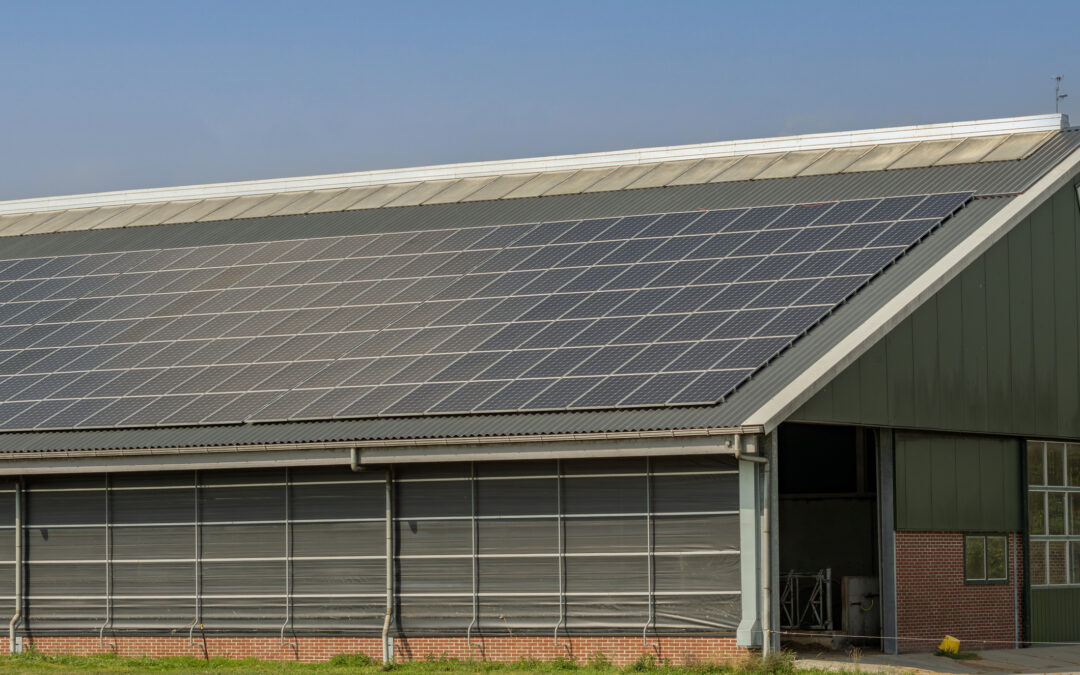Minnesota farmers are embracing a new tool in their quest for sustainability: solar energy. As the agricultural landscape evolves, more farmers are turning to solar panels to power their operations, realizing significant financial savings, environmental benefits, and energy independence. In this post, we’ll explore the integration of solar panels with agricultural practices in Minnesota and the myriad benefits it offers to farmers across the state.
Integrating Solar for Sustainable Farming
Farmers in Minnesota can seamlessly integrate solar panels with their agricultural practices by adopting various strategies tailored to their specific needs and farm operations. Here are some key ways farmers can incorporate solar panels into their agricultural practices:
- Solar-Powered Livestock Operations: Implement solar panels to power heating, ventilation, and lighting systems in livestock barns and poultry houses. Solar energy can help maintain optimal conditions for animal welfare while reducing energy costs and environmental impact.
- Solar-Powered Greenhouses: Equip greenhouses with solar panels to generate electricity for lighting, heating, and ventilation systems. Solar energy can extend growing seasons, increase crop yields, and create a more sustainable environment for growing fruits, vegetables, and flowers.
- Solar-Powered Crop Drying: Utilize solar energy to power crop drying systems, reducing the reliance on fossil fuels and minimizing operational costs. Solar dryers can effectively dry grains, fruits, and vegetables, preserving their quality and nutritional value.
- Solar-Powered Agribusiness Operations: Integrate solar panels into agribusiness facilities, such as grain elevators, processing plants, and storage facilities, to offset energy consumption and reduce operating expenses. Solar energy can provide a reliable and cost-effective source of electricity for various agricultural operations.
By integrating solar panels with agricultural practices in Minnesota, farmers can harness the power of renewable energy to improve efficiency, reduce costs, and promote environmental sustainability across their operations. With the support of solar panel installation companies and available financial incentives, farmers can transition to solar energy seamlessly and reap the benefits of a greener and more sustainable future for agriculture in Minnesota.
Financial Savings: A Path to Economic Resilience
One of the most compelling reasons for Minnesota farmers to adopt solar energy is the substantial financial savings it offers. By harnessing the power of the sun to generate electricity, farmers can drastically reduce their reliance on grid electricity. This results in significant savings on utility bills and provides a much-needed boost to their bottom line.
Solar Tax Incentives
In addition to ongoing savings on electricity bills, Minnesota farmers can take advantage of generous tax incentives to offset the upfront costs of installing solar panels. The Federal Investment Tax Credit (ITC) offers a tax credit equal to 30% of the total cost of a solar project, significantly reducing farmers’ initial investment. This incentive not only makes solar energy more affordable but also accelerates the payback period, allowing farmers to recoup their investment more quickly.
Stability in Uncertain Times
Beyond immediate financial savings, powering farms with solar energy offers long-term cost reductions and return on investment (ROI). Solar panels have long lifespans, potentially providing a reliable and stable source of electricity for decades to come.
As energy prices continue to fluctuate, Minnesota farmers face uncertainty and volatility in their operating costs. Solar energy offers a hedge against inflation, providing stability and predictability in energy expenses. By generating their own electricity from solar panels, farmers can shield themselves from the impact of rising energy prices and insulate their operations from external market forces, fostering resilience and adaptability in an ever-changing economic landscape.
Environmental Sustainability with Solar
In addition to financial benefits, solar energy is a sustainable alternative to conventional energy sources that contributes to environmental conservation and reduces carbon footprint. By harnessing the abundant power of the sun, farmers can significantly reduce greenhouse gas emissions and minimize their environmental impact. Solar panels produce clean, renewable energy without generating harmful pollutants or greenhouse gasses, making them a vital tool in the fight against climate change and environmental degradation.
Integrating solar panels into agricultural practices can also help preserve natural resources and protect ecosystems. By reducing reliance on fossil fuels, solar energy minimizes air and water pollution, mitigates habitat destruction, and promotes biodiversity. This sustainable approach to energy production aligns with Minnesota’s commitment to environmental stewardship and promotes a healthier, more resilient agricultural sector for future generations.
Energy Independence: Empowering Farmers for the Future
Perhaps most importantly, solar arrays offer Minnesota farmers greater energy independence and self-sufficiency. By generating their own electricity on-site, farmers can reduce their reliance on traditional energy sources and external utilities, ensuring a consistent and reliable power supply for their operations. This increased autonomy not only enhances the resilience of farms but also strengthens their ability to weather disruptions and crises, empowering farmers to take control of their energy future.
Cultivating a Brighter Tomorrow
The integration of solar panels with agricultural practices in Minnesota represents a transformative opportunity for farmers to enhance their financial sustainability, environmental stewardship, and energy independence. By harnessing the power of the sun, farmers can realize significant financial savings, reduce their environmental footprint, and secure a reliable source of electricity for their operations. With the support of solar installers for business in Minnesota and access to financial incentives, Minnesota farmers are well-positioned to lead the way in sustainable farming practices and cultivate a brighter future.

